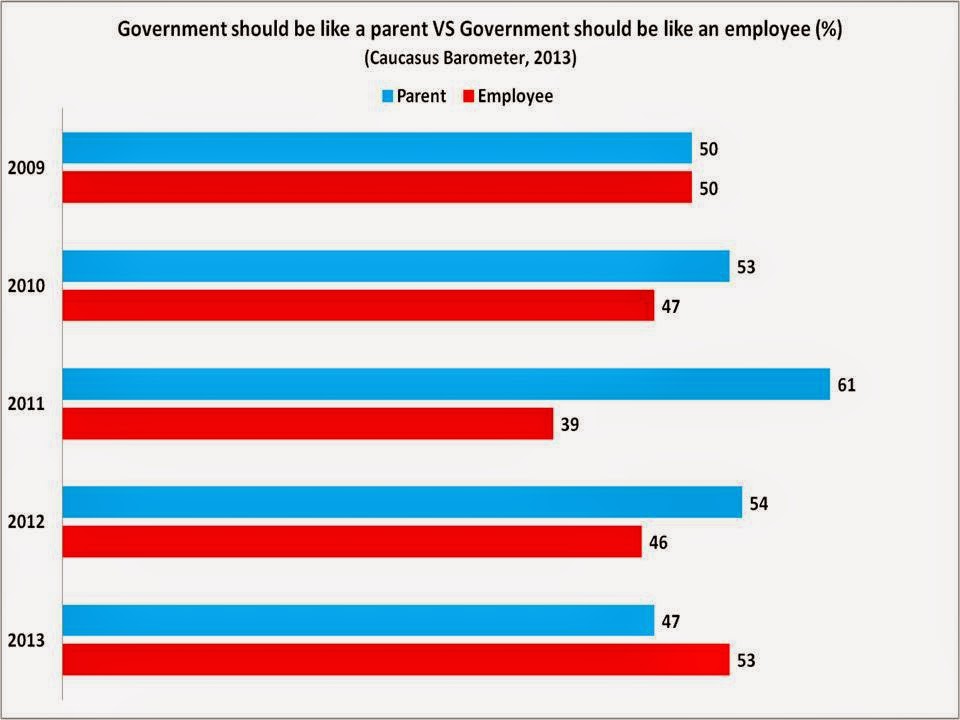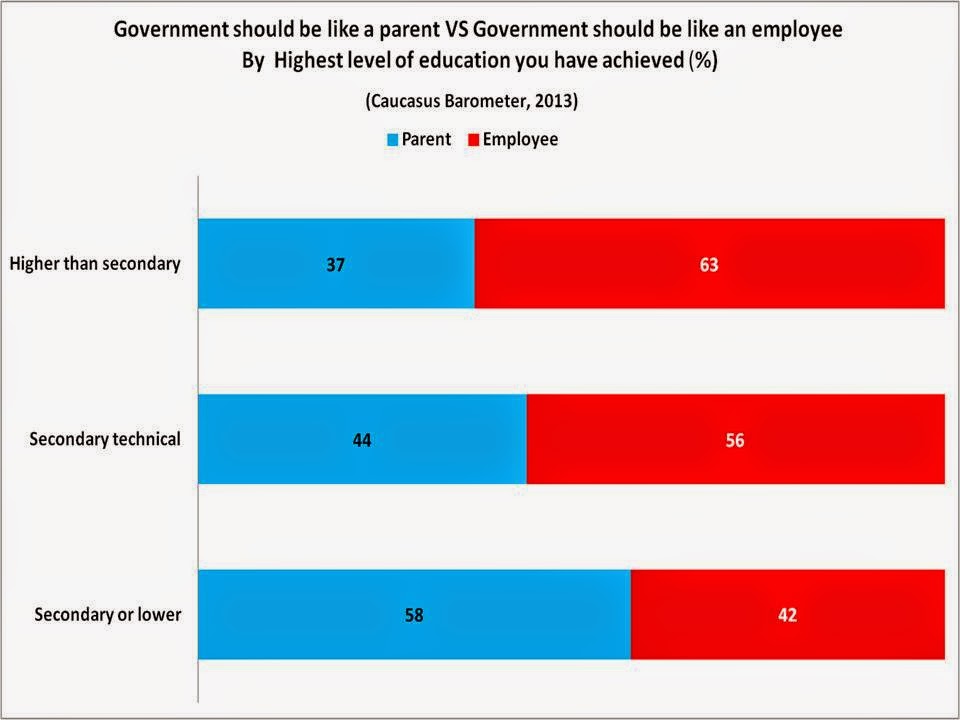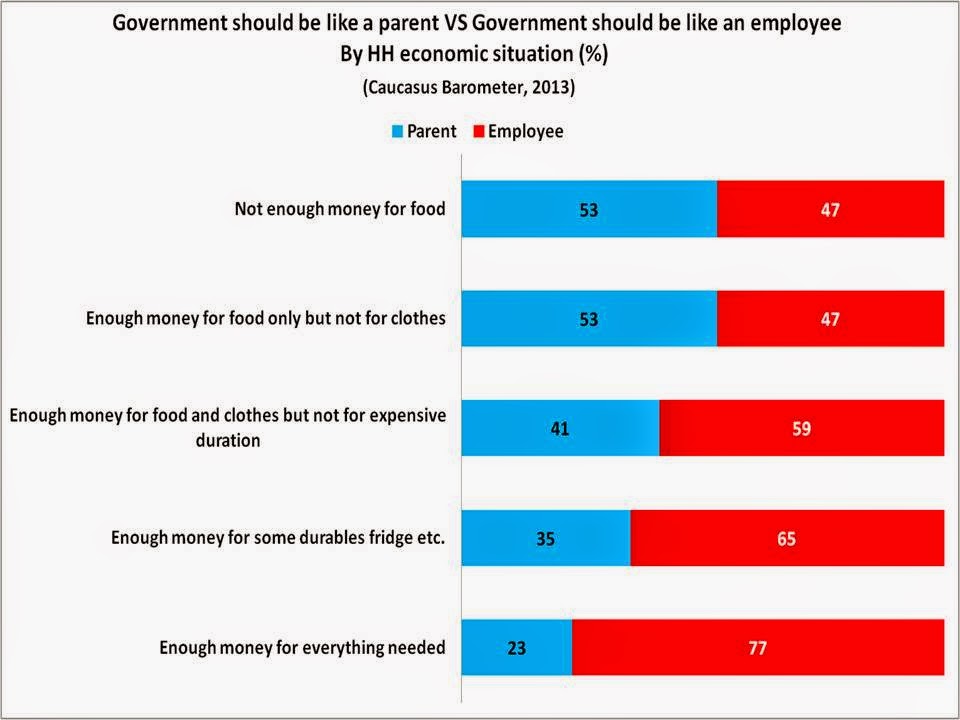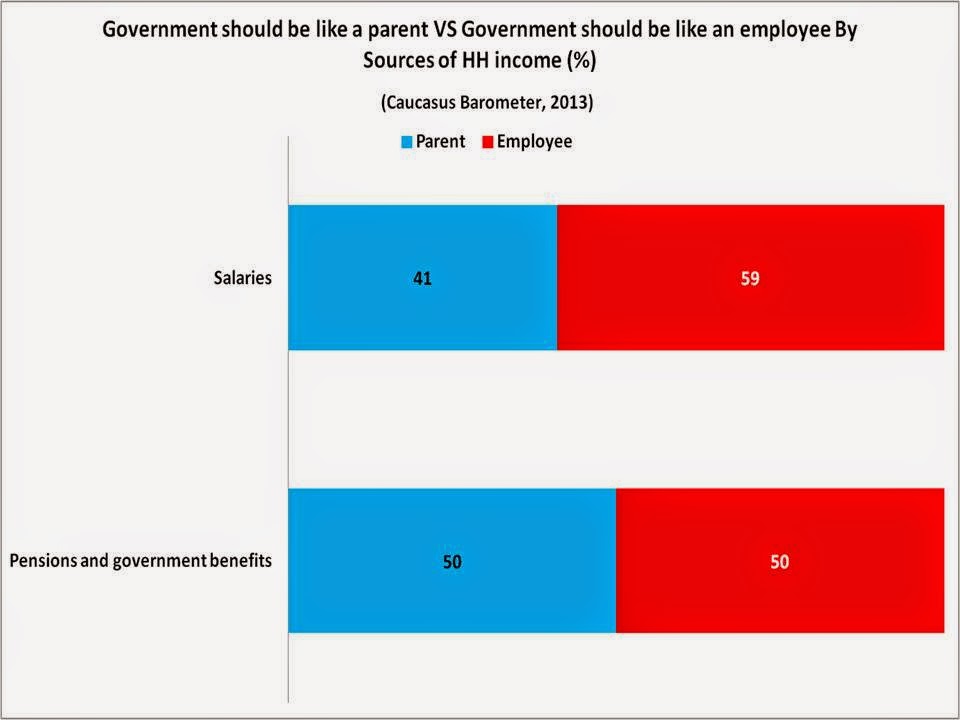
What role does education play in these attitudes? In Georgia, the negative connection between education and the paternalistic view is well evidenced; 58% of people with a secondary education or below say that the government should be like a parent, whereas 37% of Georgians with more than a secondary education share the same view.
The economic conditions of Georgians also plays a role. 53% of Georgians who say they do “not [have] enough money for food” think the government should be like a parent. A much smaller fraction (23%) of Georgians who say they have “enough money for everything needed” share the same belief.
Additionally, there is an interesting link between a paternalistic attitude toward the role of government and the source of household monetary income in the last 12 months. A paternalistic attitude is less common (41%) when a salary is mentioned as a source of income for a household. The distribution of paternalistic and non-paternalistic attitudes splits into two equal parts if the household had monetary income from pensions and government benefits in the last 12 months.
This blog examines qualities related to support for the Georgian government behaving as a parent or as an employee. According to data from the CB 2013, education level, economic condition and sources of monetary income for a household are related to approval for a paternalistic view of government in Georgia.
More information about Georgian citizens’ paternalistic attitudes toward government can be found by reading this blog post or by exploring our data here.
By Tamuna Chkhaidze















